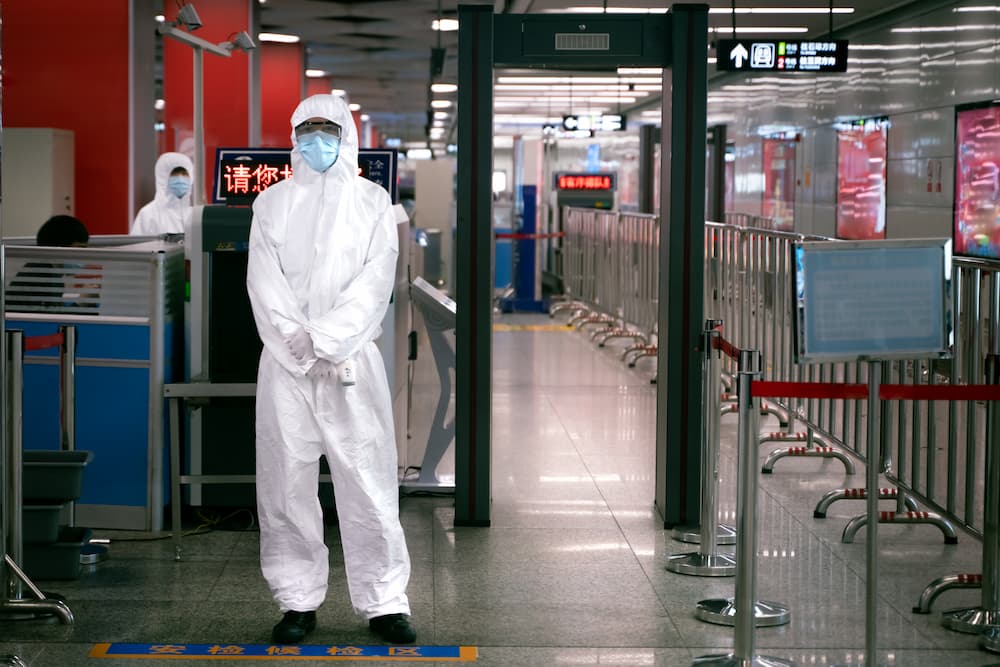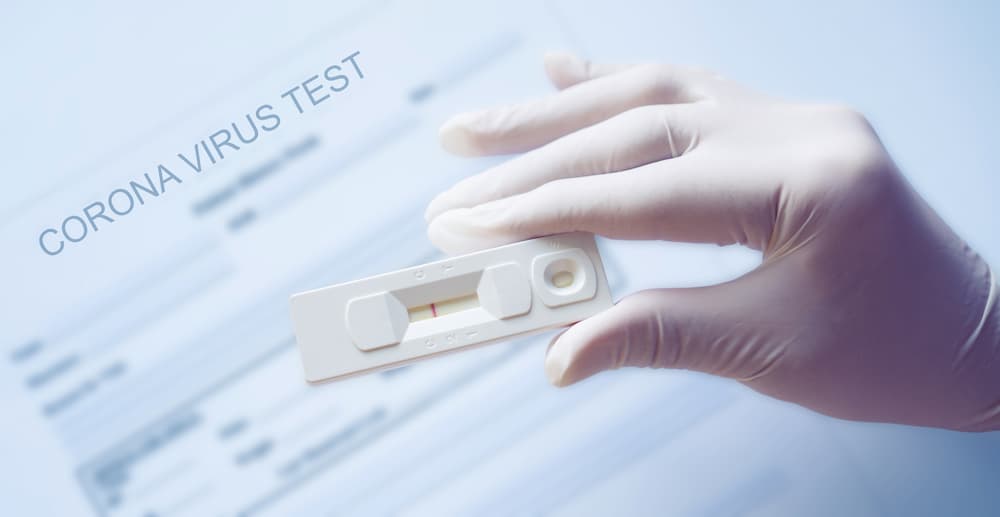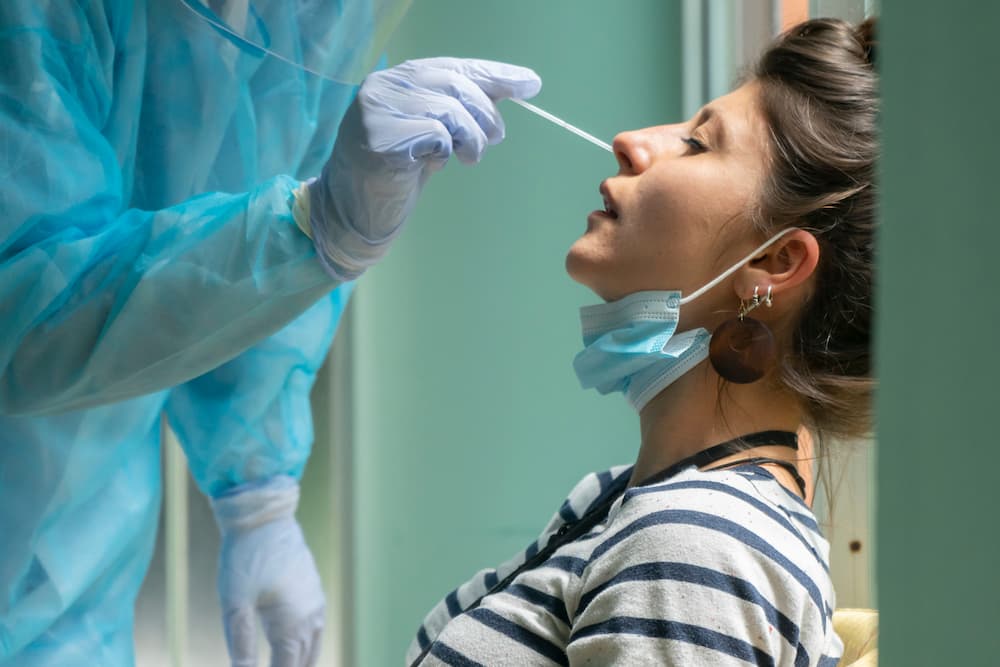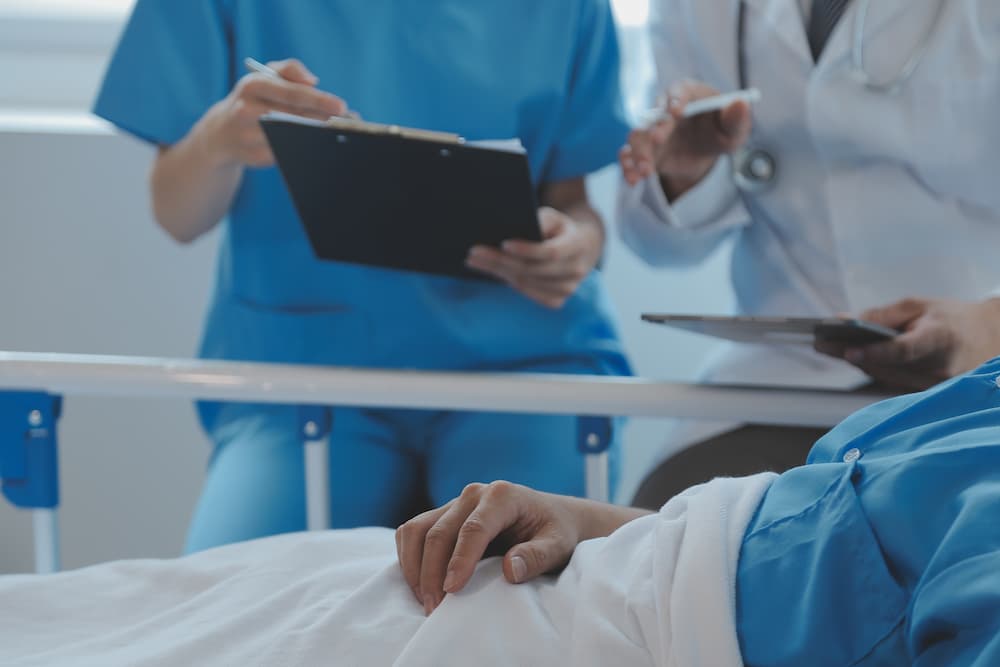
Airport and border authorities always look for travelers and visitors with Covid-19 symptoms. Persons with Covid-19 symptoms will undergo further testing, which may cause significant disruption to travel plans.
If you recently had contact with an infected person, symptoms could appear anytime, including at the Portugal border. Considering the risk of disrupting travel plans, starting the journey while aware of your Covid-19 status is advisable.
If you plan on traveling to Portugal, consider visiting a trusted urgent care center in Newport Beach to learn more about your Covid-19 status.
Do You Need a COVID Test to Fly to Portugal?
You no longer need the following Covid-19 requirements to enter Portugal(Including Madeira and Azores):
- Proof of a negative Covid test
- COVID-EU digital certificate
- Vaccination
- Recovery certificates issued by third countries accepted and recognized in Portugal.
Current Travel Restrictions for Portugal
There are no travel restrictions while entering Portugal, making it a destination open to people from different nationalities.
U.S. citizens are advised to exercise standard precautions in Portugal.
Requirements to Enter Portugal from the U.S.
Here are the documents you’ll need to enter Portugal:
- Your passport should be valid for at least three months beyond the day you plan to leave
- A passport with two blank pages
- You don’t need a tourist visa in the Schengen area under 90 days and within 180 days.
- At the Portuguese border, you may need to show a return or onward ticket and proof of enough money for your stay.
Requirements for Returning to the U.S. from Portugal
As of May 12, 2023, noncitizen nonimmigrant air passengers will no longer need to show proof of vaccination with an acceptable vaccine to board a U.S. flight.
As of 12 June 2022, the requirement to present proof of a negative test before entering the U.S. is suspended.
Symptoms
Covid-19 is a respiratory condition caused by the SARS-CoV-2 virus. People infected with Covid-19 display various symptoms ranging from mild to severe. Symptoms may appear 2-14 days after exposure.
The period between exposure and display of symptoms is called incubation. However, infected persons without symptoms also transmit symptoms, known as asymptomatic transmission.
More notably, anyone can develop mild to severe symptoms. However, older people and those with underlying medical conditions are at high risk of developing complications.
Possible symptoms of Covid-19 include:
- Fever or Chills
- Sore throat
- A loss of smell or taste
- Vomiting or Nausea
- Shortness of breath or dry cough
- Runny nose or congestion
- Body or muscle aches
- Feeling very tired
- Cough
- Headache
- Rash
- Pink eye(Conjunctivitis)
Some people experience worsening symptoms like shortness of breath a week after infection. In other instances, some people experience Covid-19 symptoms several weeks after diagnosis, a health issue known as Post-Covid.
When to See a Doctor
If you have Covid-19 symptoms or have been in contact with an infected person, contact your healthcare provider immediately for medical advice.
The physician will most likely recommend you get tested for Covid-19.
If you develop emergency symptoms, seek immediate medical attention.
Emergency symptoms can include:
- A New Confusion
- Trouble Breathing
- Persistent chest pain or pressure
- Trouble staying awake
- Blue, pale, or gray-colored skin, lips, or nails depending on your skin tone.
Complications
Although most people with Covid-19 develop mild to moderate symptoms, the SARS-CoV-2 virus can cause severe complications and sometimes lead to death.
Covid-19 complications include:
- Acute kidney injury
- Trouble breathing and pneumonia
- Heart problems
- Kidney damage
- Liver complications or damage
- Blood clots
- Guillain-Barre syndrome
- Additional bacterial or viral Infections
- Acute kidney injury
How Covid-19 Spreads From Person to Person
The virus travels in respiratory mists released into the air when an infected person coughs, sneezes, sings, talks, or breaths near you. You become infected when you inhale these droplets.
You may also get Covid-19 from close contact( shaking or touching) with an infected person and then touching your face.
Total Cases in Portugal
Portugal recorded 5,601,153 confirmed Covid-19 infections and 27,904 deaths, as reported by World Health Organization. In addition, the Portuguese Ministry of Health has administered 27,771,341 vaccine doses.
The latest statistics show Portugal recorded a 35% positivity rate for the examined samples.
What Will Happen if I Test Positive for Covid-19?
If you test positive while entering Portugal, you may be required to remain there until you test negative. Fortunately, there are multiple health facilities available to facilitate your recovery efforts.
Airport or border authorities may also request you to self-quarantine. Unfortunately, Covid-19 health interventions can cause a significant delay in your travel plans.
Testing for Covid-19
There are a variety of tests that can detect a Covid-19 infection. Viral tests like antigen and molecular tests detect a current Covid-19 infection. Further, we have an antibody test determining if you have a past Covid infection.
Molecular Test for Covid-19
A molecular test is also called a Reverse Transcription Polymerase Chain Reaction (RT-PCR) test or Nucleic Acid Amplification Test (NAAT). The molecular test analyzes the upper respiratory specimen checking for genetic material (Ribonucleic Acid or RNA) of SARS-CoV-2, the virus that causes Covid-19.
The test kit amplifies small amounts of RNA from the specimen into DNA, replicated until the SARS-CoV-2 virus is detected. According to a 2021 study, molecular tests displayed 96% of instances of detecting the Covid-19 virus.
Due to its high accuracy levels, the molecular test has been the ‘gold’ standard for diagnosing Covid-19 since its authorization in 2020. As such, a positive outcome of a molecular examination is enough to diagnose a Covid-19 infection.
Even so, it is possible to receive a false negative for the following reasons:
- Testing Too Early: It takes up to five days after exposure for the genetic material of the SARS-CoV-2 virus to build up to detectable levels. If you test too early, within the 5-day window, you may get a false negative.
- Testing Too Late: The genetic material begins disappearing on the upper respiratory tract after the first week of infection. With that in mind, you’ll likely get a false negative if you test too late.
Here’s how a physician collects a sample:
A healthcare provider uses a swab to collect respiratory material found in the nose. A swab is a long stick that goes into your nose cavity. A nose or a nasal swab extracts a sample inside the nostrils, or nasopharyngeal swabs that go further into the nasal cavity for collection.
Other tests involve a saliva sample collected by spitting into a tube.
In some test centers, you can get molecular test results within 15-45 minutes. However, it may take 1-3 days if a physician sends the samples to an external lab.
Antigen Test
Like a molecular test, an antigen test checks a current Covid-19 infection. It is also commonly called a rapid test and produces results after 15-30 minutes. The antigen test works by looking for specific viral markers called antigens.
A positive covid test is very accurate and reliable. However, the antigen test is less likely to detect a Covid infection, particularly for people without symptoms. As such, a healthcare provider will administer a molecular test to confirm a negative antigen test.
Alternatively, Food and Drug Administration Authority(FDA) recommends the following repeat testing procedure for antigen tests.
- 2 antigen tests for people without symptoms, done 48 hours apart
- 3 antigen tests for people with symptoms, done 48 hours apart
- A single PCR test to confirm a negative Covid-19 test
An antigen test, self-test, or at-home test can be taken anywhere without going to a specific testing site. Even so, read the test kit instructions carefully to ensure you get accurate results.
Antibody Covid Test
An antibody or serology test is a blood test that checks a previous Covid-19 infection. The body develops antibodies in response to the illness or after vaccination. The SARS-CoV-2 antibody test can identify someone who may have been infected with Covid-19 or fully recovered.
Unfortunately, an antibody test cannot tell if you have an active Covid-19 infection.
Antibody tests can also show how your body reacts to a vaccination. A negative result implies that the test didn’t identify antibodies in your blood.
The body takes 2-3 weeks after an infection or vaccination to develop enough SARS-CoV-2 antibodies to be detected by the test. Therefore, it is essential to wait before taking the test.
Here are a few reasons you need an antibody test:
- You developed a severe reaction to the first vaccine shot
- You had Covid-19 symptoms but didn’t take a test
- You had a past Covid-19 infection and would like to donate plasma.
You can get the results of an antibody test within the same day. However, it may take 1-3 days if the healthcare provider sends the sample to an external lab.
Interpreting a Positive Result
If your Covid test is positive, the virus was detected, and you recently had an infection.
Take the following steps:
- Isolate
- Take precautions like wearing a well-constructed, fitting, and comfortable mask or respirator to protect others around you from getting infected.
- Tell those you’ve recently had contact with that they may be exposed
- Monitor your symptoms closely; seek immediate care if you develop any emergency symptoms.
- Consult a physician from an urgent care center about your treatment options.
Interpreting a Negative Result
If your test is negative, the examination didn’t detect the SARS-CoV-2 virus; however, it doesn’t rule out an infection.
Here’s what explains your situation if you have symptoms:
- You may have an infection but did the test before the virus could be detected
- You may have another viral infection that requires separate testing
If you have symptoms, take everyday steps to stop the spread of the condition to other people.
If you don’t have symptoms and haven’t been exposed, you may return to normal activities.
Critical Times to Get Tested
- Take the test immediately if you have symptoms
- If you have symptoms but have been exposed, wait until five full days after exposure before taking a test.
- You may also need testing before an event, internal travel, or visiting a high-risk area. It is advisable to test as close as possible to the day of travel(1-2) days to help you make an informed choice about your health and the risk of spreading to others.
Checklist and Resources for International Travelers
Get the required documents, including passport, Visa, and Consent for Travelers with Minors. Ensure you have extra copies of the critical travel documents in an emergency.
Read travel alerts and advisories you’ll be visiting at travel.state.gov/destination
Get Insurance: Plan with your insurance provider about suitable health insurance while abroad, emergency evacuation, and unexpected expenses.
Important Links:
- Resources to use while abroad
- Learn about your destination
- Getting help in an emergency
Stay Informed About Covid
You can take several actions to reduce your infection risk and spread the illness to other people.
Follow the following recommended steps by CDC to lower your risk:
- Get vaccinated
- Avoid close contact with a sick or infected person
- Wash your hands with soap for at least 20 seconds
- Avoid touching your eyes, nose, and mouth
- Clean and disinfect high-touch areas like door knobs, countertops, and electronics
- Wear a face mask in an indoor public space or high-risk places like hospitals
Make an Informed Travel Plan With Newport Covid Test for International Travel
If you recently had contact with an infected person, embarking on a journey to Portugal is risky. If you test positive at the airport, you must stay there until you test negative. Unfortunately, any delay will disrupt your family vacation or business trip.
To that end, you should consult a physician about your Covid-19 status before an international trip.
Newport Urgent Care & Occupational Medicine has a well-equipped lab and board-certified physicians ready to assist you.
Contact us online or call us at 949.284.2813 to book an appointment.







